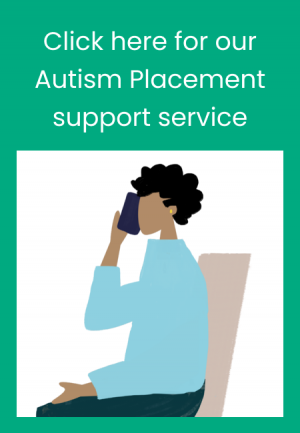This article addresses how autistic people can avoid sleep deprivation during COVID-19 and offers useful strategies.
Autism spectrum disorder (ASD) encompasses a broad variety of conditions that are characterized by difficulties when it comes to communication, language, and social behavior. These difficulties are unique to the individual and are sometimes carried out repetitively.
According to the World Health Organization (WHO), every 1 in 160 children have ASD. The organization also estimates that as of 2015, 24.8 million people all over the globe have ASD.
But here’s the thing: people with autism are just like any other person. They love playing outdoors, are interested in sports, learn music and art, and many others. It’s just sad that these activities are halted because of the COVID-19 pandemic.
Useful Tips in Achieving High-Quality Sleep for People with Autism
It’s important to note that autistic people face specific challenges that most non-autistic people tend to brush aside. Among these are chronic sleep problems. More than half of those who have autism often experience difficulty in falling and staying asleep.
We all know that terrible sleep the night before can negatively affect our mood, ability to focus, and energy level. With the existing anxiety challenges that people with ASD have to cope with, the effects of sleep add up the conditions of the spectrum that they’re already facing. That includes unmanageable emotions, uncontrollable outbursts, difficulties in concentrating, and more.
Worse, the stress, isolation, and uncertainty brought about by the ongoing COVID-19 pandemic further exacerbate the problem. Regular sleep schedules become more challenging to maintain, causing lethargy, insomnia, and other issues associated with lack of sleep.
If you have a household member who is autistic, follow these tips. They should help you and your loved one achieve better-quality sleep.
Sleep on a comfortable mattress
The bed is a significant factor in achieving restful sleep. Thus, it’s essential to choose the right mattress. Now, there’s no one-mattress-fits-all bed. How comfortable the mattress depends on a lot of factors.
For example, does your loved one like to sleep on a soft bed? If so, you might want to opt for a plush memory foam mattress, so they’ll feel like they are sleeping on a bed of clouds. Are they continually shifting sleeping positions? Then you might want to select a mattress with good motion isolation properties. Do they often sleep on their stomach? Then a firm, innerspring mattress would help keep the spine aligned.
Look at the product description of your preferred brand or get in touch with their representatives. These sources can help you choose the right mattress.
Make sure the room is conducive to sleep
In addition to a comfortable mattress, the sleeping environment should encourage sleep. That means no gadgets or electronic devices that can tempt people to stay awake. Keep artificial lighting to a minimum, and turn off everything before sleeping.
Keep the room clean and fresh. Adjust the HVAC system, so the temperature is cool and comfortable.
Know legitimate and factual information about COVID-19
One of the things that make people stressed about COVID-19 is the conflicting information surrounding the disease. Every day, people get bombarded with conflicting information from biased news, personal COVID-related experiences of other people, inaccurate data, and even conspiracy theories. When combined, these can cause confusion that can cause unnecessary stress that can keep someone from sleeping soundly.
Learn more about COVID-19 from reliable sources such as the WHO, the Centers for Disease Control (CDC), or the Department of Health. They publish the correct numbers, facts, and guides about COVID-19 so you can deal with the situation more objectively.
Establish a daily routine and sleep schedule
COVID-19 has disrupted everyone’s routines, mostly due to isolation measures and limited movement. However, it’s essential to maintain a daily routine that has a resemblance to normalcy. Remember that the body remembers our patterns and habits.
For example, if the family is used to waking up at 6 AM, make sure everyone wakes up at around that time. Stick to the usual playtime or dinner schedule. If you’re working remotely, follow your working hours in the office. If family bedtime is at 9 PM, then let everyone go to bed at 9 PM. Don’t let anyone be tempted to stay awake beyond 9 PM just because they’re just staying home.
Exercise and play
Many people with ASD are active and fun-loving. However, the isolation measures and limited mobility means they can’t release that energy. This causes them to become restless; the pent-up energy keeps them from sleeping soundly.
Thus, make sure you incorporate a time to play and exercise each day. Let them enjoy and spend all that energy in their games, physical activities, and creative endeavors. If possible, do these things outdoors, right there under the sun. Exposure to the sun normalizes the production and release of melatonin, which is linked to sleeping.
By the end of the day, they’ll have spent all that energy and become more conducive to sleep.
An important point to remember: avoid having vigorous physical activities a few hours before bedtime. Doing so increases body temperature and disrupts the circadian rhythm, making it more difficult for the person to sleep.
Avoid late suppers or bedtime snacks
Let your family eat a light meal, just enough to satisfy the tummy. It’s also recommended to eat dinner early to allow time for efficient digestion. Avoid eating late-night snacks because having a full stomach during bedtime makes it difficult to sleep.
It’s also best to avoid drinking large amounts of liquids before bedtime. Doing so may interrupt one’s sleep since nighttime bathroom calls become more frequent.
Don’t drink caffeinated beverages
It’s also important not to drink any beverage that contains caffeine at least 5 hours before bedtime. Caffeine is a stimulant that helps keep a person awake and alert. But for an autistic person, it kicks the mind into overdrive, preventing them from sleeping.
Coffee is often the most popular drink associated with caffeine. However, other beverages such as soda, tea, and energy drinks may contain caffeine as well. It’s best to avoid them and gulp up some water or fruit juice instead.
Conclusion
Many people already have trouble sleeping due to COVID-19-related stress and disrupted routines. So you can just imagine how difficult this is for a person with ASD, with their need for predictability and their susceptibility to high levels of anxiety aggravating the problem. Hopefully, the tips above will help them achieve a much-needed rest.
____________________________________________________________________________________
If you need help looking for services for an individual with an autism spectrum condition, we will do our best to help. Click below for the Autism Placement Support Service.




